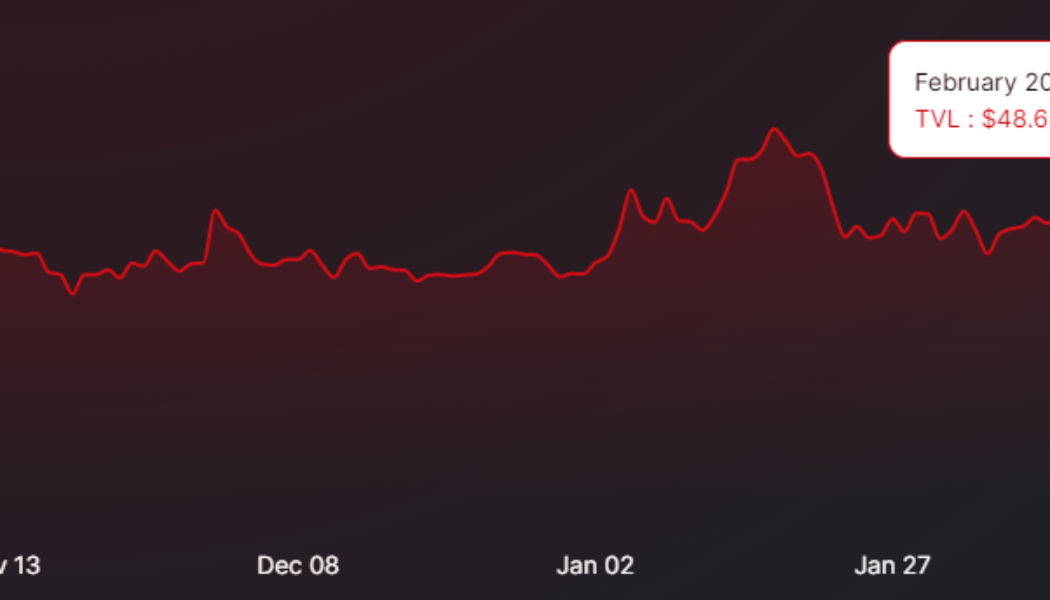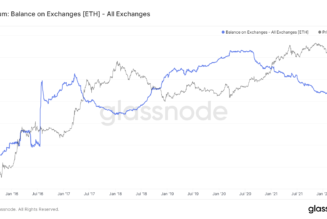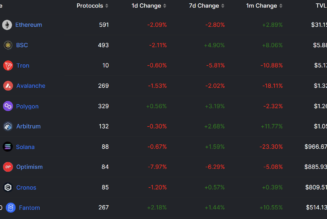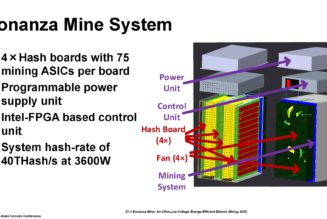One of the most significant transitions to occur for the cryptocurrency ecosystem since the launch of Bitcoin (BTC) has been the increasing dominance of proof-of-stake (PoS) protocols over the proof-of-work (PoW) model, primarily due to energy requirements of the PoW model and growing concern over its environmental impact.
As more projects launch or transition to the PoS model, a new class of protocols have emerged that are focused on offering liquid staking options that allow token holders to tap into the value held in their staked tokens while still earning a yield for locking their assets on the network.
pSTAKE Finance is one of these platforms and here’s a brief look into its long-term goal of adding utility to the proof-of-stake model and how it differs from similar protocols.
Heavy hitters back the project with a $10 million seed funding round
The pSTAK project is part of the Persistence (XPRT) protocol, a multi-chain tech stack that supports Cosmos (ATOM), Ethereum (ETH) and other Tendermint-based chains. The long-term mission of Persistence is to create an ecosystem of multi-chain Web3 products designed to stimulate global liquidity and enable simplified value exchange.
The project got a boost in November 2021 after it successfully completed a $10 million seed funding round from investors that include Three Arrows Capital, Galaxy Digital, Coinbase Ventures and Alameda Research.
The funds raised during the seed round have been used to provide the reserves necessary to bootstrap liquidity staking on the protocol and ensure that there was enough liquidity for users to engage with the platform.
Since its launch, pSTAKE has offered liquid staking for Cosmos and XPRT, which have annual yields of 12% and 32%, respectively. Users who deposit ATOM or XPRT on the protocol receive stkATOM or stkXPRT in return, which can then be used for various functions in decentralized finance (DeFi), including borrowing and lending.
According to data from Defi Llama, the pSTAKE protocol currently has a total value locked (TVL) of $48.63 million.

Developers behind the project are currently working on adding support for other tokens including Ether, Terra (LUNA) and Solana (SOL).
Liquid staking comes to the Cosmos ecosystem
While it’s nice to have new protocols that offer liquid staking, one key question to ask is how this project sets itself apart from the competition.
Lido, for instance, is a liquid staking protocol that already offers support for Eth2, Terra, Solana and Kusama, and has a TVL of $9.35 billion.
The main difference for pSTAKE is that it emerged out of the Cosmos ecosystem and has its main focus on increasing liquidity for other protocols that are part of the Inter-Blockchain Communication Protocol (IBC) through adding Ethereum Virtual Machine (EVM) compatibility.
While Lido does offer support for Terra, pStake is the only protocol that offers support for ATOM and other Tendermint-based projects.
Once obtained, stkTOKENs are available for use across various decentralized finance protocols within the Ethereum ecosystem, allowing their holders to generate additional yield.
Related: Here’s how Terra traders use arbitrage to profit from LUNA and bLUNA
pSTAKE airdrop and ongoing developments
Looking forward, pSTAKE is focused on increasing the size of its community and expanding its offerings by adding support for other projects in the Cosmos ecosystem.
As a way to help increase community support and reward early adopters, the project launched an airdrop of its pSTAKE token, which will see 30 million pSTAKE distributed over the next six months to a variety of addresses including ATOM, OSMO and XPRT stakers.
1/ $PSTAKE Airdrop Explained
Beginning Feb 24, 30M $PSTAKE will be airdropped over 6 months to:
♦️ $ATOM, $XPRT, $OSMO stakers
♦️ stkAAVE, $CRV (including yveCRV, cvxCRV) holders
♦️ pSTAKE early adopters
♦️ @Cosmos $XPRT StakeDrop participants— pSTAKE Finance (,) (@pStakeFinance) February 18, 2022
On the development side, one of the main collaborations being explored currently is with Terra’s Anchor Protocol (ANC), a savings protocol that is responsible for the minting of the TerraUSD (UST) stablecoin.
1/ Exploring pSTAKE & Anchor Synergies@anchor_protocol represents the gold standard of DeFi savings. pSTAKE is the most prominent $ATOM liquid staking solution.
Collaborating on new bAssets (e.g. $bATOM) would benefit both while unlocking new DeFi opportunities for stakers. pic.twitter.com/2ZQlfeBx8c
— pSTAKE Finance (,) (@pStakeFinance) February 5, 2022
Through this integration, ATOM tokens could eventually be used as collateral to mint UST on Anchor, which can currently only be done with LUNA and Ether.
The views and opinions expressed here are solely those of the author and do not necessarily reflect the views of Cointelegraph.com. Every investment and trading move involves risk, you should conduct your own research when making a decision.
 [flexi-common-toolbar] [flexi-form class=”flexi_form_style” title=”Submit to Flexi” name=”my_form” ajax=”true”][flexi-form-tag type=”post_title” class=”fl-input” title=”Title” value=”” required=”true”][flexi-form-tag type=”category” title=”Select category”][flexi-form-tag type=”tag” title=”Insert tag”][flexi-form-tag type=”article” class=”fl-textarea” title=”Description” ][flexi-form-tag type=”file” title=”Select file” required=”true”][flexi-form-tag type=”submit” name=”submit” value=”Submit Now”] [/flexi-form]
[flexi-common-toolbar] [flexi-form class=”flexi_form_style” title=”Submit to Flexi” name=”my_form” ajax=”true”][flexi-form-tag type=”post_title” class=”fl-input” title=”Title” value=”” required=”true”][flexi-form-tag type=”category” title=”Select category”][flexi-form-tag type=”tag” title=”Insert tag”][flexi-form-tag type=”article” class=”fl-textarea” title=”Description” ][flexi-form-tag type=”file” title=”Select file” required=”true”][flexi-form-tag type=”submit” name=”submit” value=”Submit Now”] [/flexi-form]










Tagged: crypto blog, Crypto news